There are few things more wholesome, rewarding, and calming than keeping your own chickens–that is until their predators come along. Unfortunately, it’s inevitable that crafty foxes, lurking raccoons, and swooping hawks will try their best to prey on your beloved chickens, but that doesn’t mean that they have to succeed. Just take care of the following precautions, and you should be able to keep predators out of your chicken coop and run.
Elevate the Coop Off the Ground
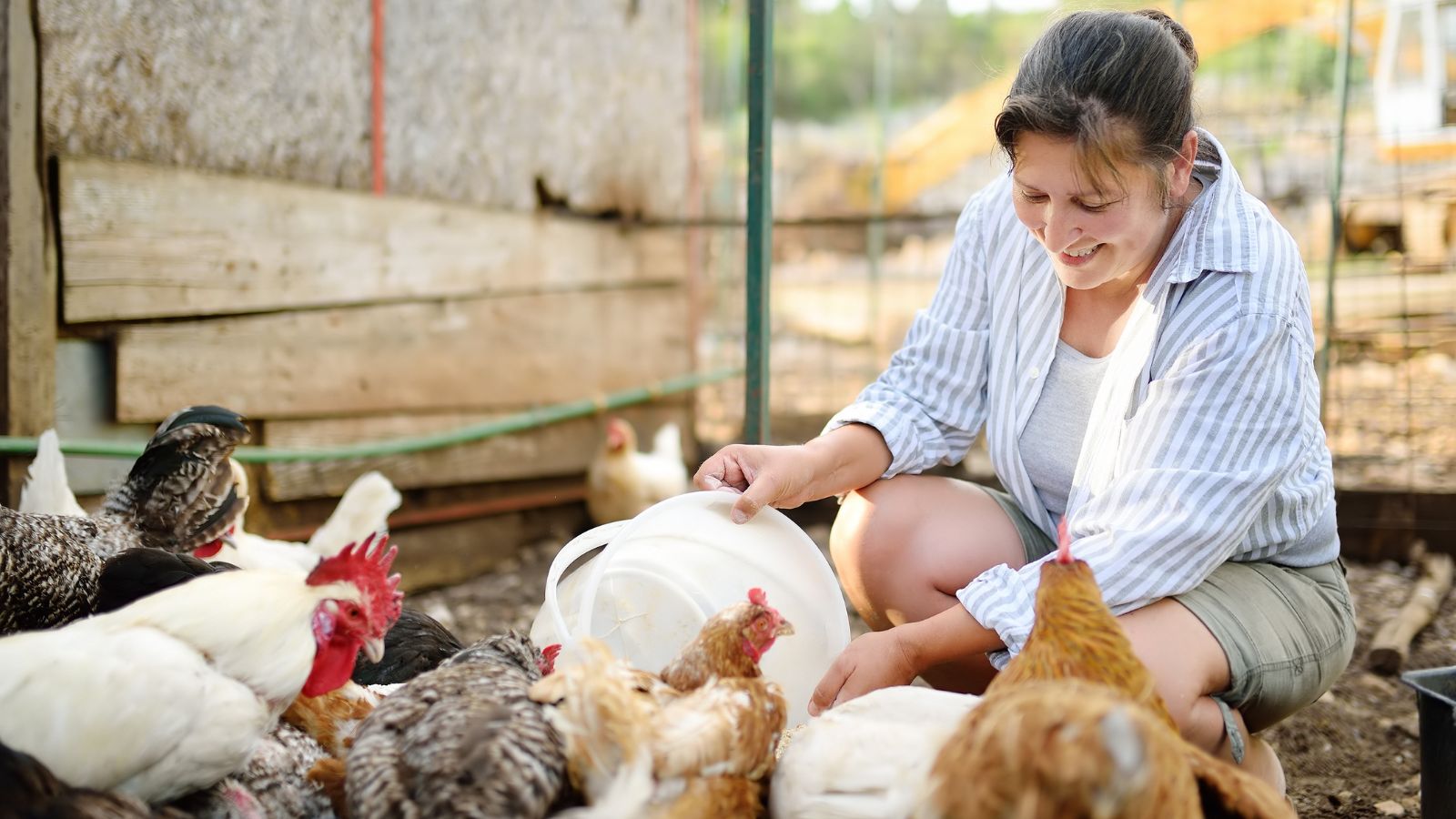
It’s a wise idea to keep your coop a few feet off the ground to make it harder for predators like rats and snakes to gain entry. Raised coops also allow air circulation underneath, which helps prevent moisture buildup and mold. Many chicken owners find this simple adjustment effective against unexpected guests, so go ahead and get your coop elevated–your chickens won’t mind as long as it’s done safely.
Choose Strong Materials for the Coop and Run
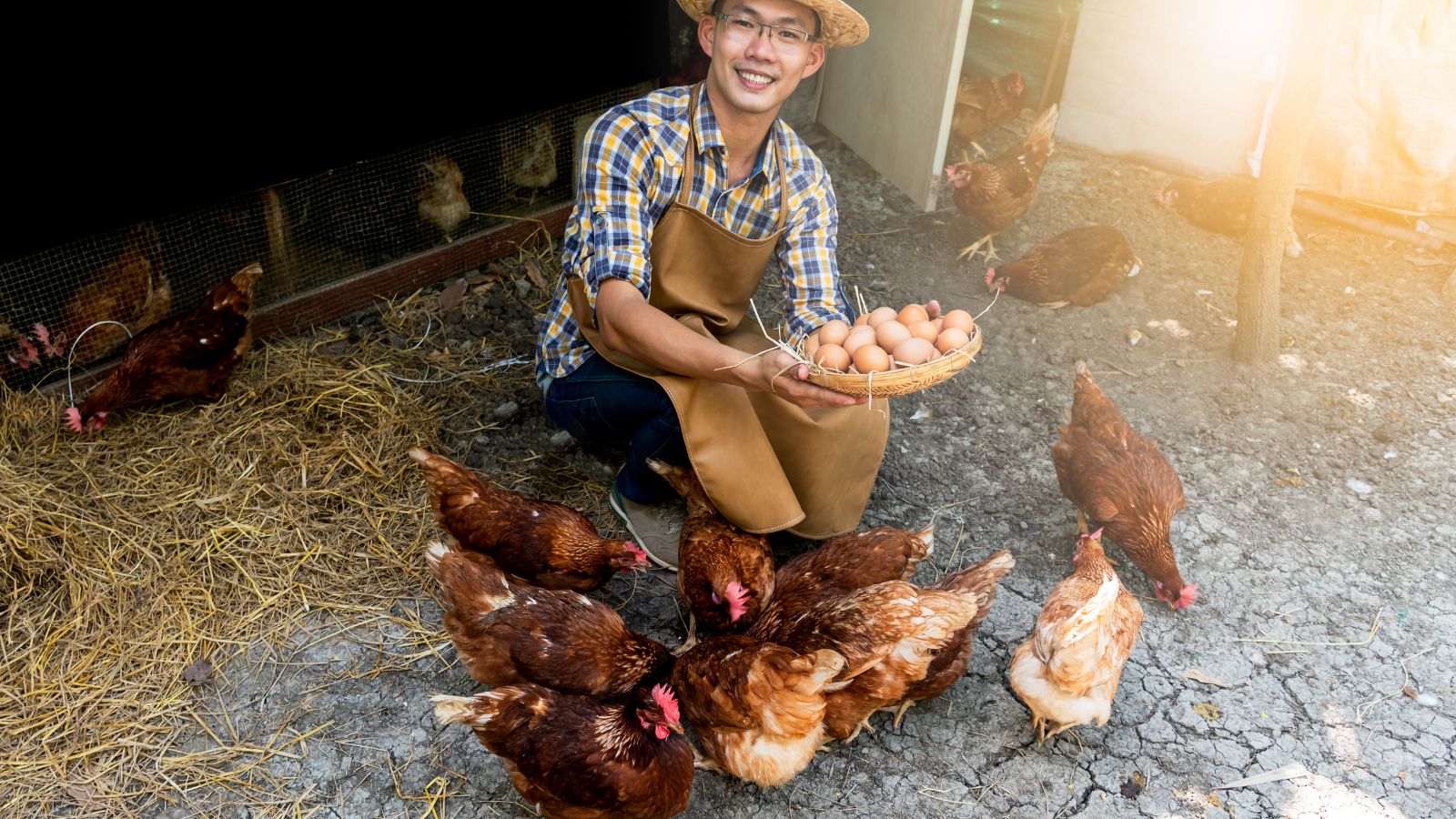
Perhaps the most important step to ensuring predators don’t prey on your chickens is to ensure that your coop and run are made from strong materials. Flimsy materials are easy targets for determined predators, so reinforce your coop with sturdy wood and hardware cloth instead of chicken wire, which many animals can tear apart. Furthermore, heavy-duty staples and screws can keep the fencing and framework stable, leaving no weak points for sneaky critters to exploit.
Install an Automatic Coop Door
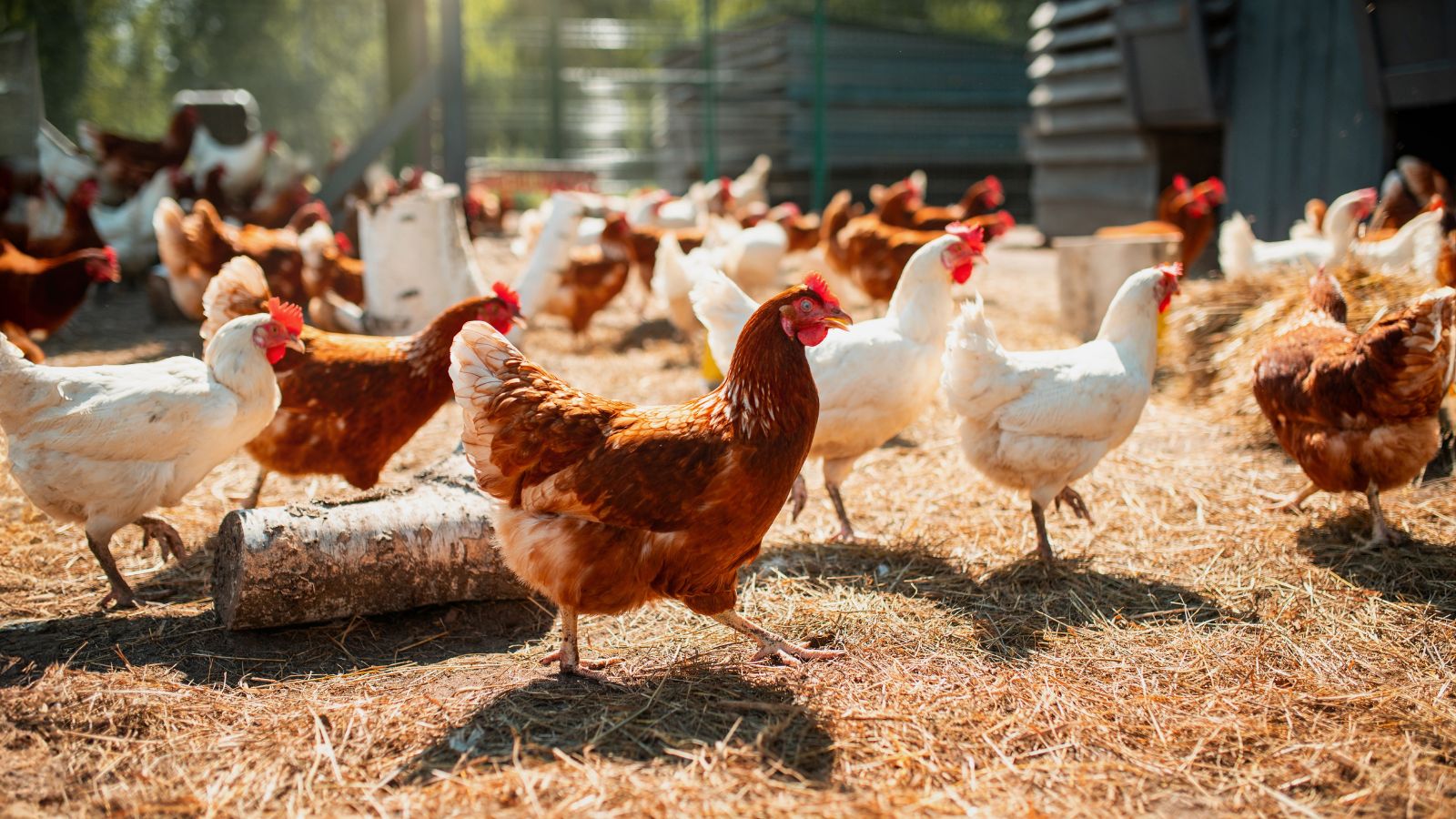
Automatic coop doors close at dusk, locking out nocturnal predators without requiring you to be there. These doors offer peace of mind, especially when busy schedules might otherwise leave the coop unsecured. Look for a sturdy model with a dependable timer or light sensor to ensure timely closure, and make sure you don’t become too reliant on it, taking some time to check on it once in a while.
Add Predator-Proof Latches
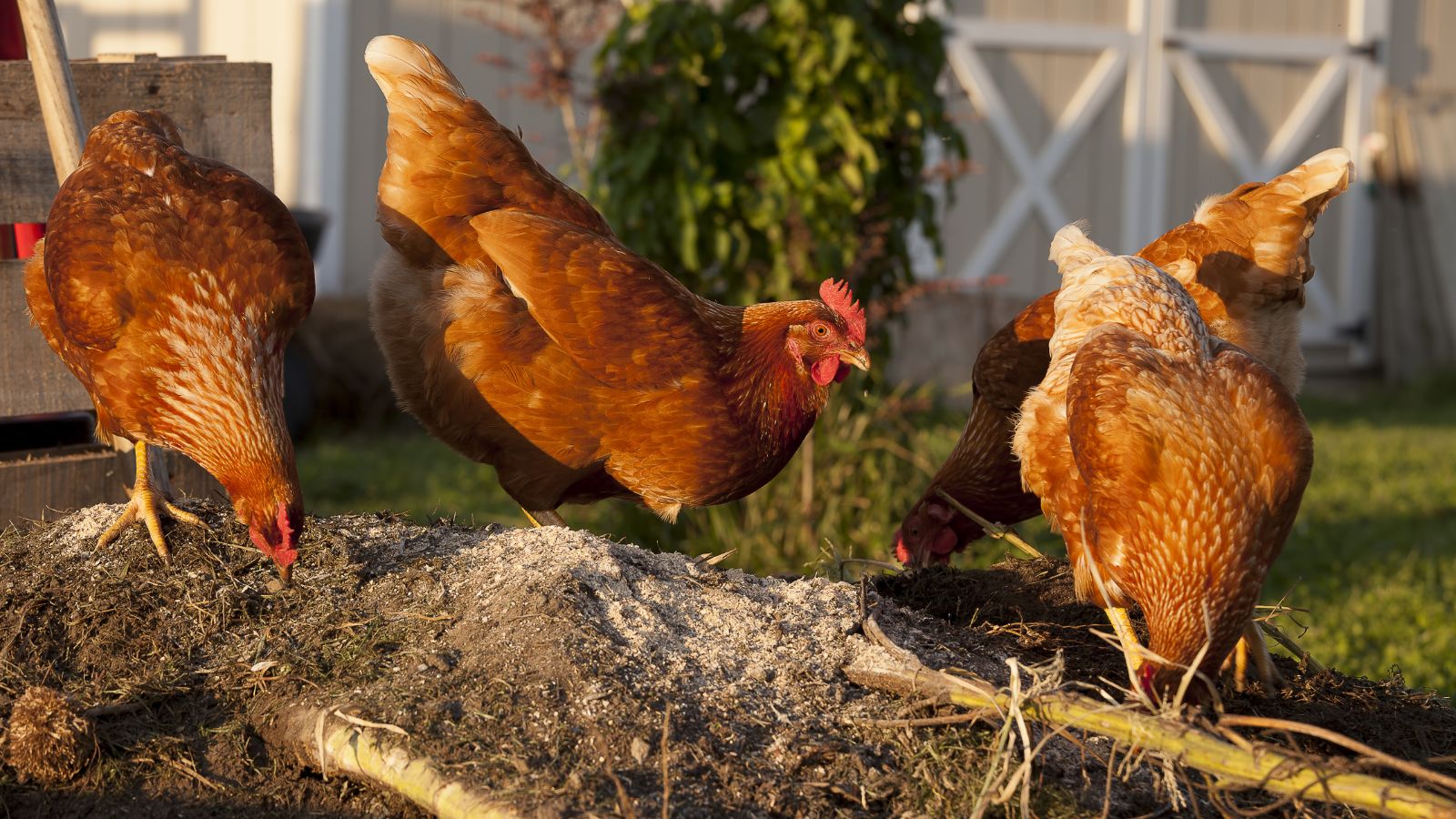
While it might be impressive, raccoons, foxes, and even some birds of prey can figure out simple latches, which is pretty annoying. To counteract their smarts, start using locking mechanisms with higher complexity, stopping them in their tracks. For example, spring-loaded or double-lock latches require a bit of effort to open, and your chickens’ predators aren’t likely to be that intelligent.
Secure the Floor With Hardware Cloth

While a dirt floor may seem fine for your chickens, burrowing animals can actually dig their way in. One way to prevent this is to line the floor with hardware cloth, adding an extra layer of protection beneath the coop. Attach it securely to the walls and extend it outward a foot to stop even the most ambitious diggers from reaching your chickens.
Add Motion-Activated Lights or Alarms
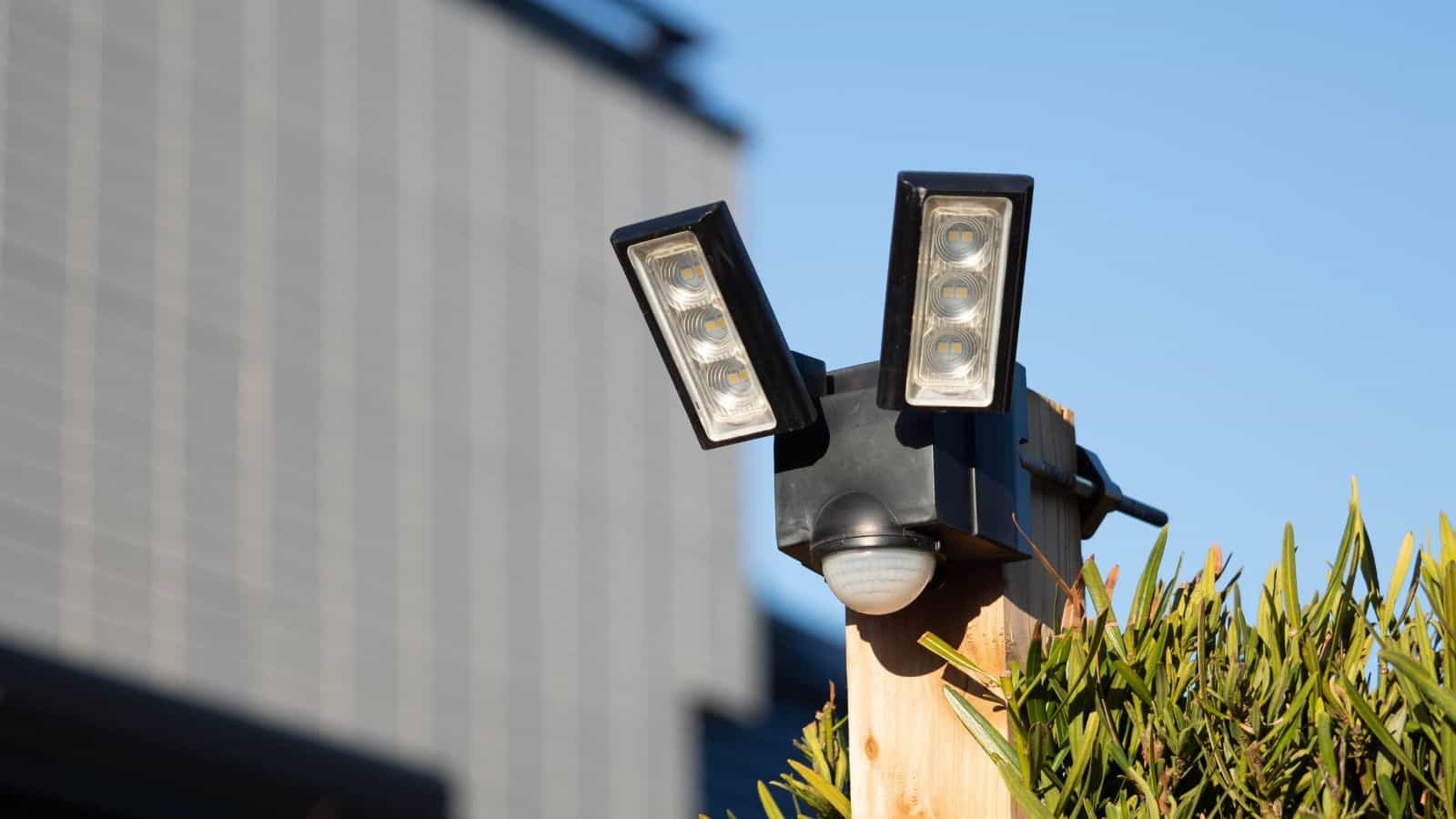
Many predators are wary of bright lights or sudden noises, which is why installing motion-activated lights or alarms around the coop can be so effective. Solar-powered options are the best option for low maintenance, as they’re easy to set up and don’t need to be replaced frequently.
Bury Fencing Below Ground Level
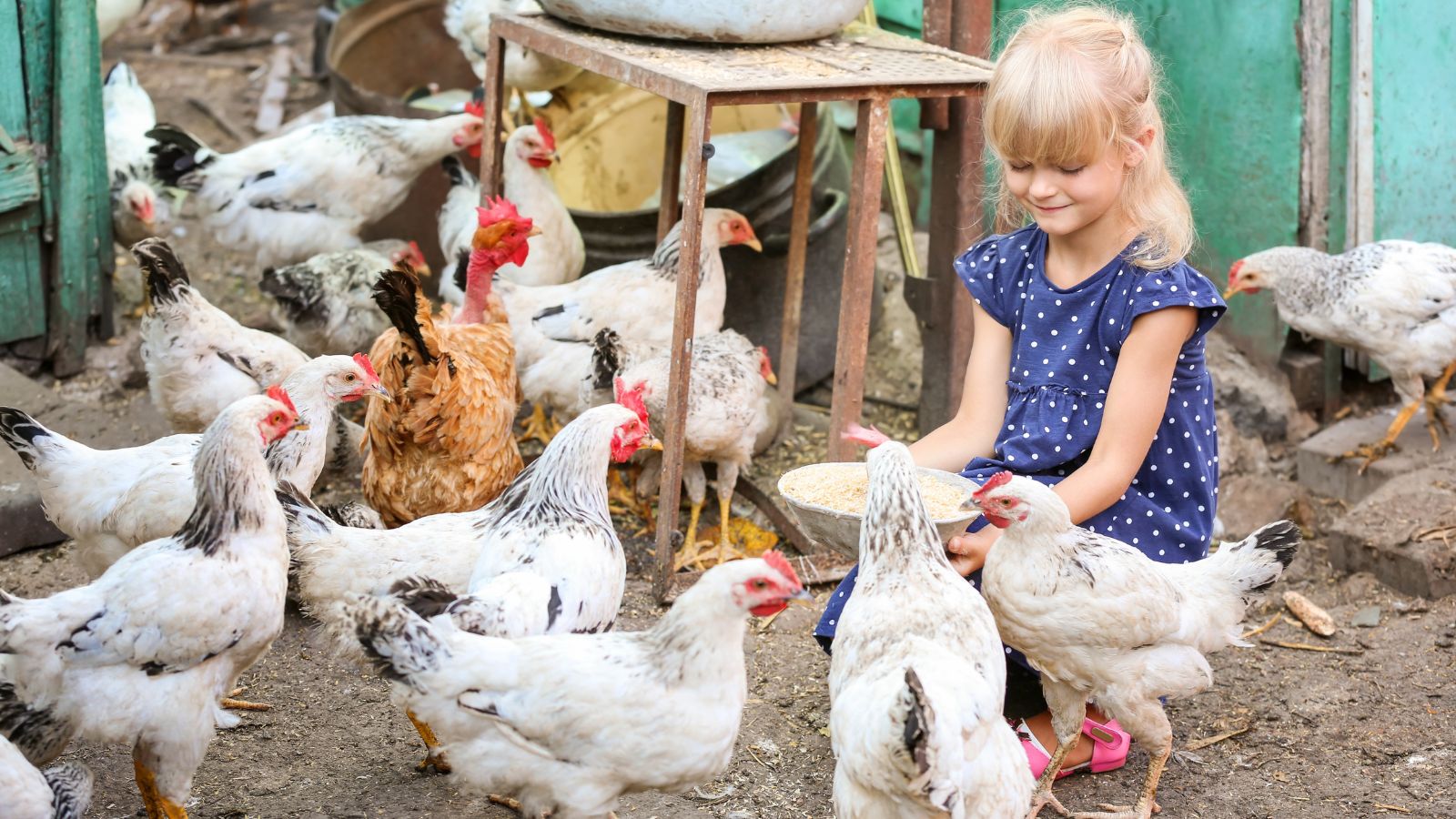
The next thing we’d recommend trying to deter predators from your chicken coop is to bury fencing below ground level. While this might sound strange, some predators will persistently dig under barriers to reach their prey. So, by burying your coop’s fence at least a foot deep, you create a sturdy obstacle for any digging attempts.
Install a Roof Over the Run

You think it is farfetched, but hawks and owls are always on the lookout for an easy meal so they can attack from above. Therefore, a solid roof over the run is essential, keeping these airborne hunters away from your flock. Roofing also shelters chickens from rain, snow, and harsh sunlight, keeping them more comfortable all year round, so it’s a win-win.
Keep Food and Water Covered Inside the Coop
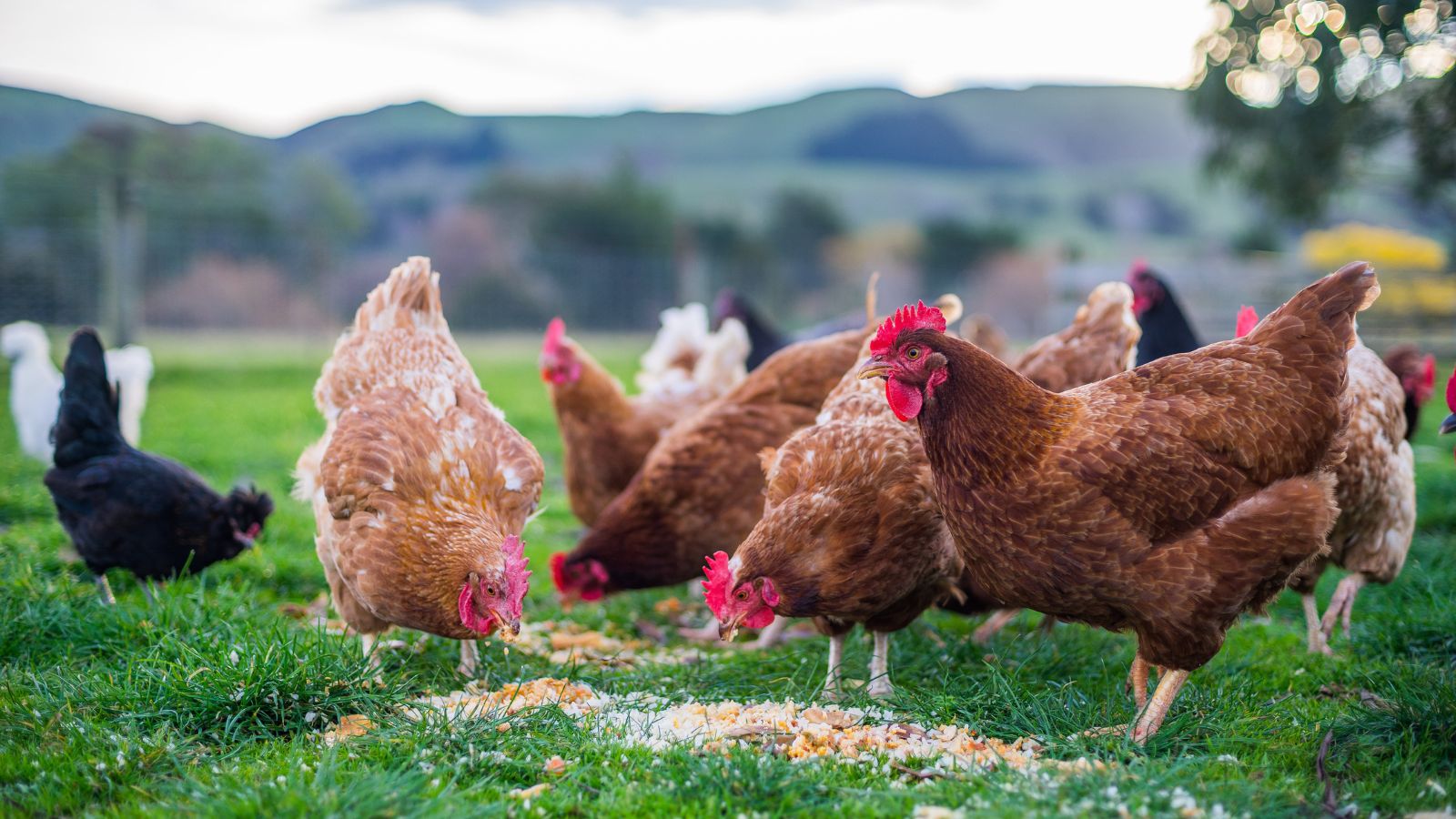
Unfortunately, leaving food and water in open areas attracts all kinds of unwanted visitors, so you should keep these essentials covered inside the coop or within a secure run, reducing the scent that lures predators. As a bonus, it keeps the feed dry and protected, making it fresher for your chickens.
Consider a Guard Animal

Some chicken owners find guard animals like dogs, llamas, or even donkeys effective against predators. Dogs can be a great choice, but introducing larger animals like llamas or donkeys requires substantial space and additional upkeep, which may not be practical for every backyard setup. However, as long as you ensure that your guard animal is friendly with chickens, they should be happy to help.
Use Reflective Tape or Deterrent Eyes

Predators are often wary of unfamiliar visuals, and therefore, even just a bit of reflective tape or a few deterrent eyes will be sufficient to scare them away. Frustratingly, these methods can lose effectiveness over time as animals get used to them, but they work in the short term. For a more long-term solution, use reflections alongside other, more permanent measures.
Remove Potential Hiding Spots
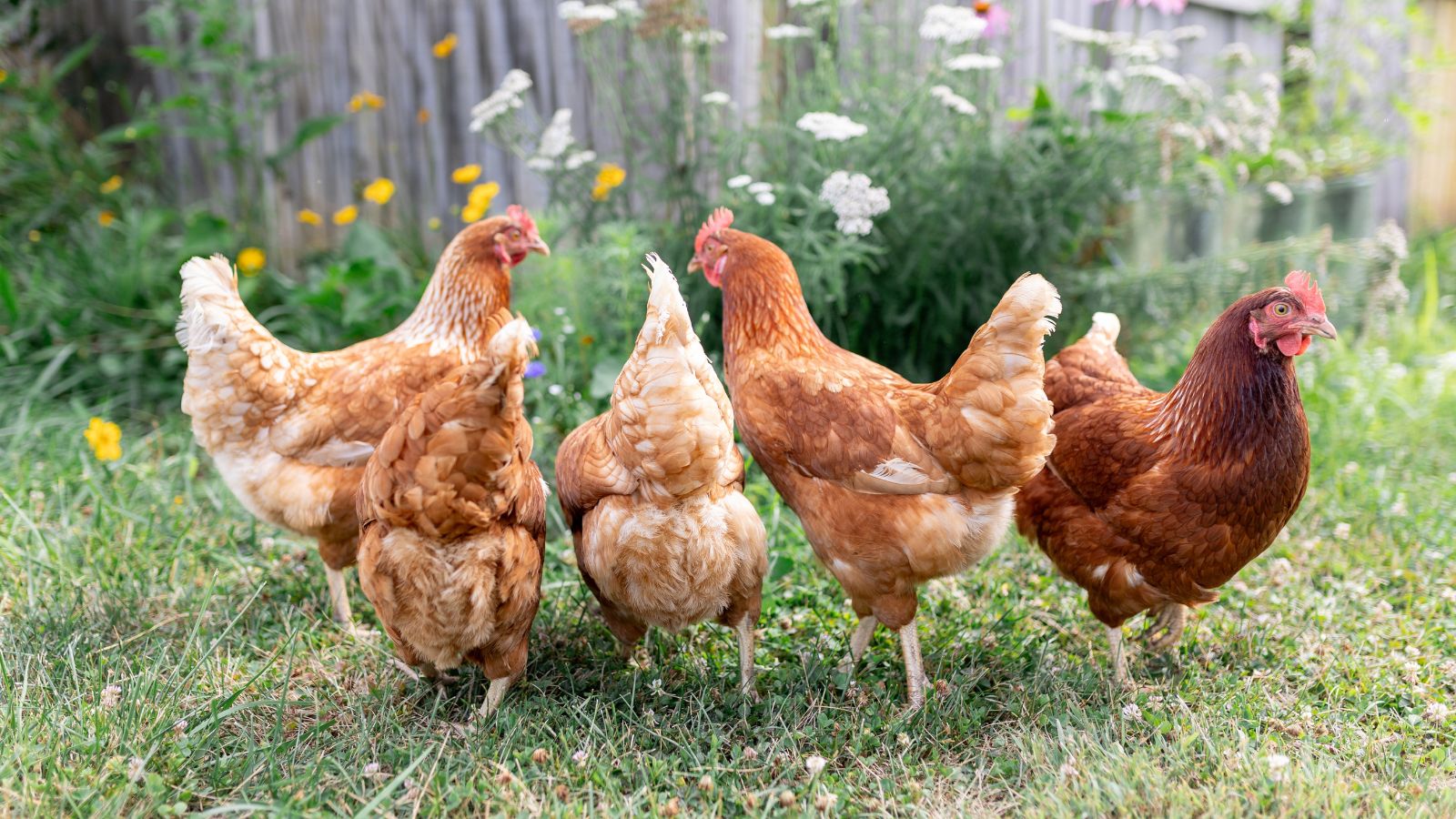
Predators love to hide while waiting for a good opportunity, so it’s a smart idea to remove brushes, woodpiles, or tall grass near your chicken coop, leaving predators without cover and discouraging lurking. Ultimately, an open, clear space around your coop and run creates a more secure environment for your chickens.
Keep Rodents Away From the Coop
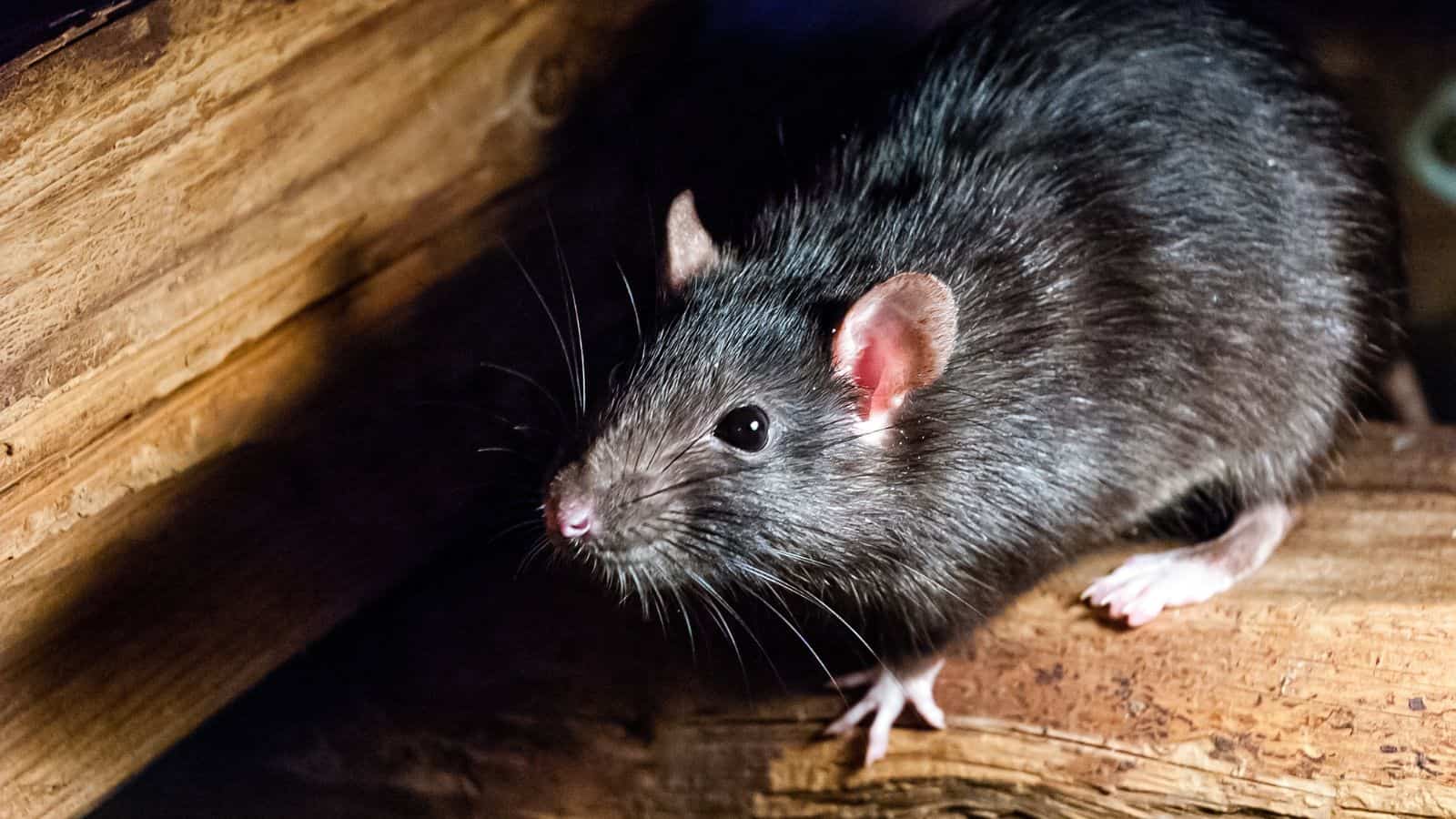
Rodents are known to attract larger predators, so keeping them out is crucial. Seal small openings in your coop, ensure that you’re storing your chicken feed securely, and keep the coop clean, and you should be able to reduce rodent activity. By minimizing rodent presence, you lower the chances of attracting their natural predators, who will cause a lot more damage.
Plant Prickly Bushes Around the Run

Some chicken keepers swear by thorny bushes as a natural deterrent, planting rose bushes, blackberry vines, or other prickly plants around the run to discourage animals from getting too close. Sure, this can work, but you’ll need to be careful, ensuring that they’re beyond chickens’ reach to prevent accidental pricks and injuries.
Set Up Nesting Boxes and Perches High Up

Chickens love to roost high up, which keeps them safer from ground-level threats. Therefore, by providing elevated perches and nesting boxes, you give your chickens a place to retreat that’s harder for predators to reach. It’s a simple but effective adjustment in coop design and one that you can complete while elevating the entire coop, as was discussed previously.
Regularly Inspect and Repair the Coop
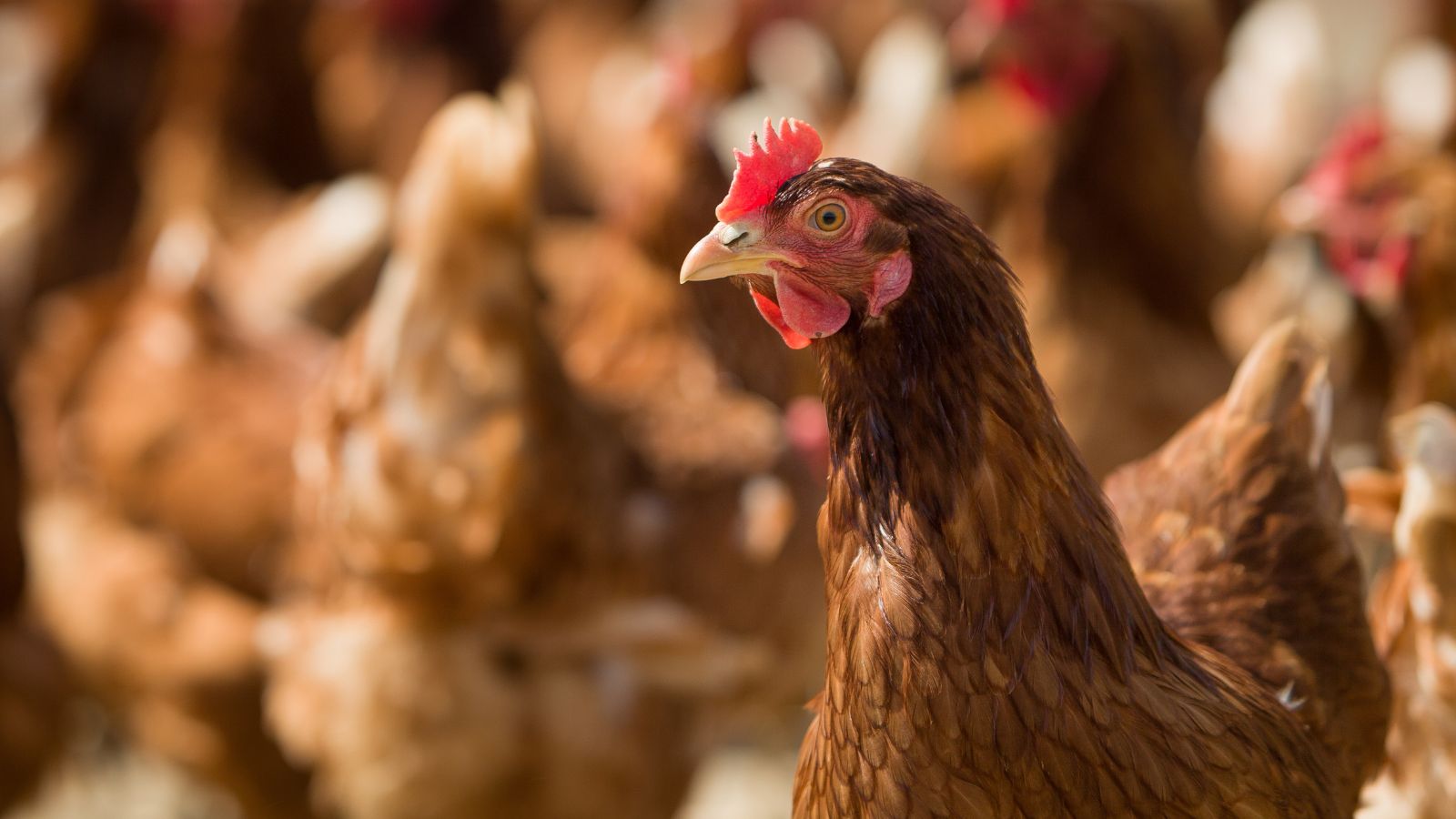
Even the smallest of gaps or wear in your chicken coop’s structure can be an entry point for pests or predators, so remember to conduct regular inspections, helping you to catch and repair potential weaknesses before they’re exploited. Pay special attention to corners, latches, and any areas that look worn or damaged.
Use Strong Smells as a Repellent
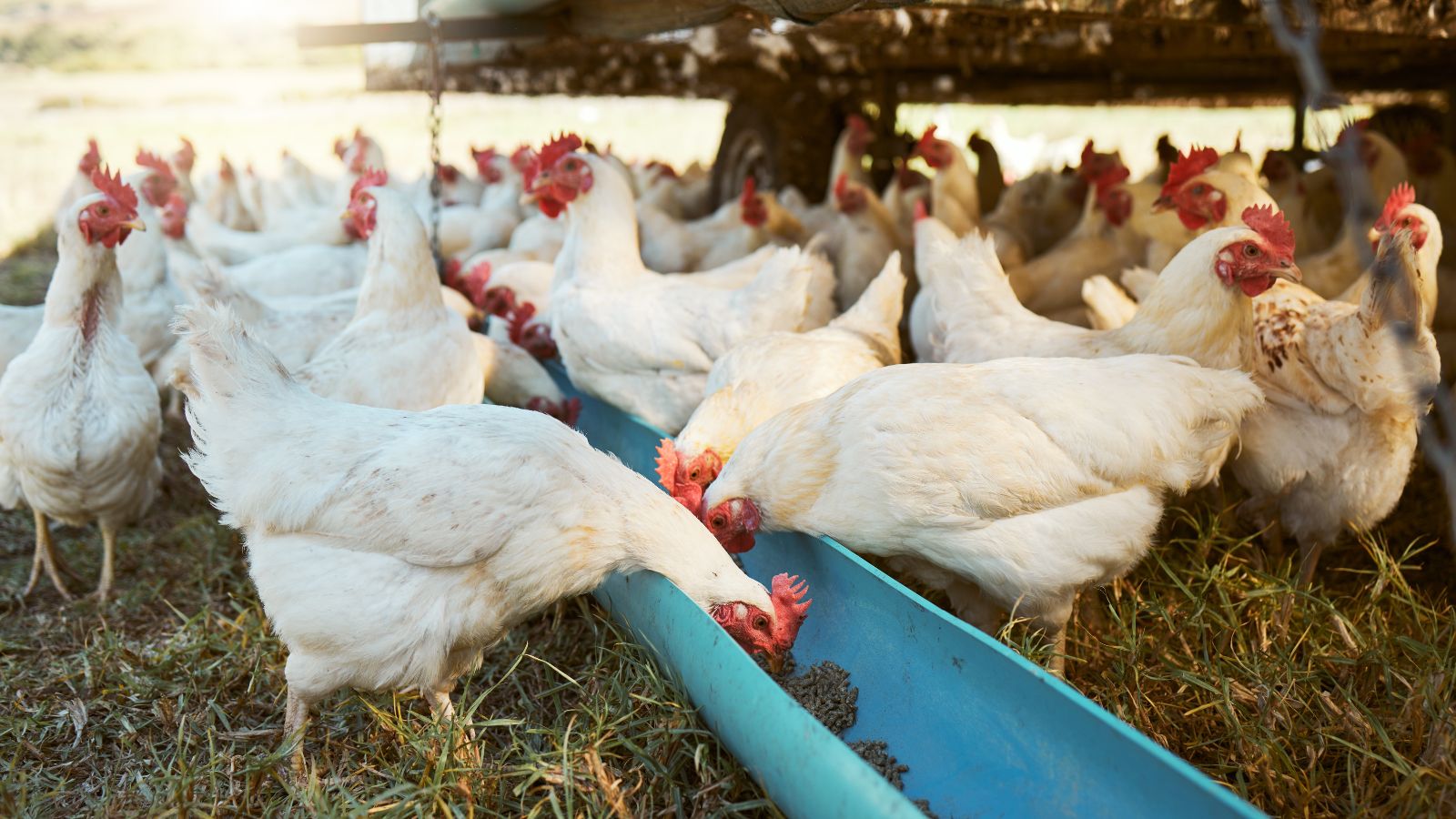
Last but not least, predators dislike strong scents like predator urine, which can be effective when used sparingly around the coop’s exterior. It’s best not to be tempted to use ammonia or vinegar, though, as while they’re known to deter certain animals temporarily, excessive application may harm chickens. Instead, stick to natural scents for a safer option against unwelcome guests.
